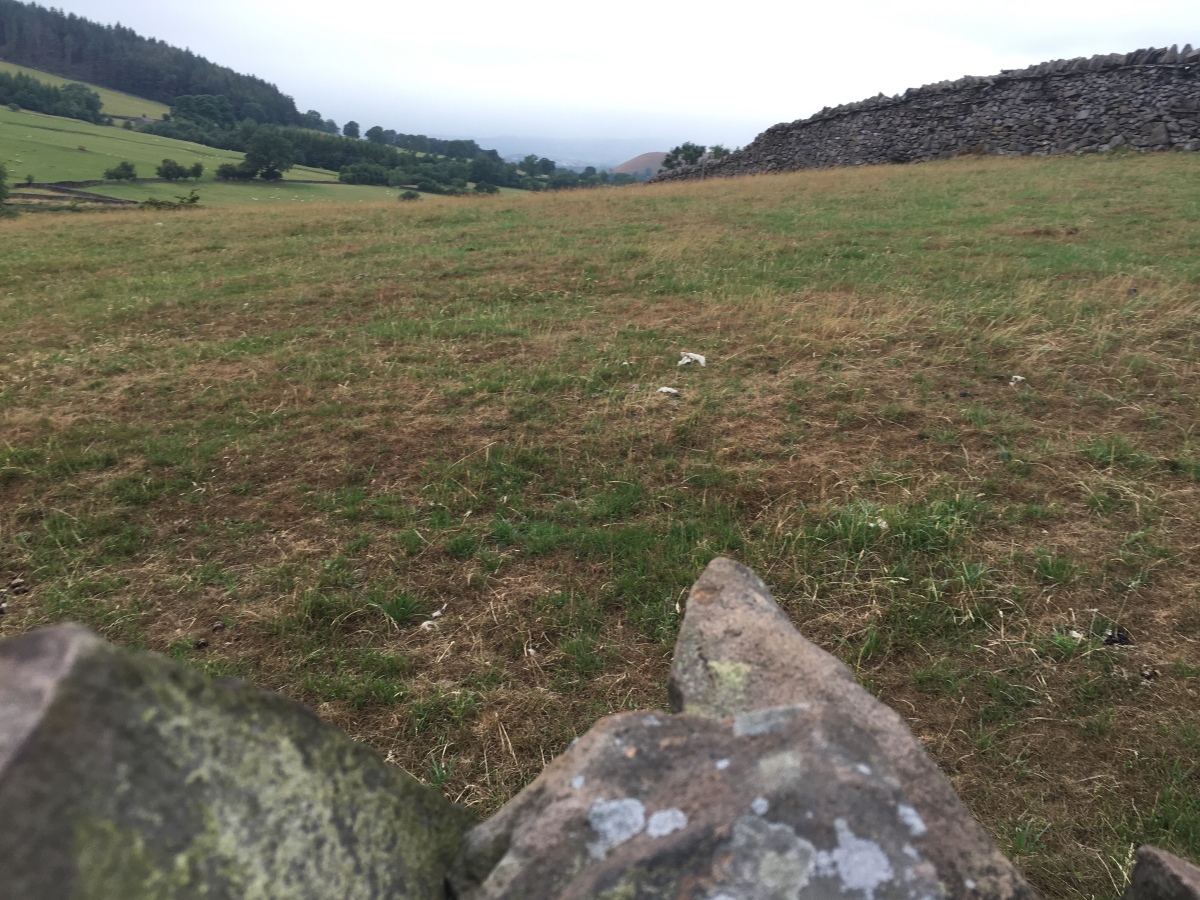Yesterday the BBC Breakfast team visited our farm to learn about how the prolonged period of dry weather is effecting farmers (in particular livestock farmers) across the country.
Whilst Polly may have stolen the limelight with her best-behaviour and displays of affection for the presenter, the issue is extremely serious and worrying for all involved in British farming.
Here is why the recent weather is so problematic for livestock farmers up and down the UK – feel free to do a rain dance once you have finished reading – I know we would all really appreciate it!

The Issues With All This Dry Weather …
Despite being fortunate enough to have had a couple of rain showers here in the past month, LACK OF WATER is a huge issue for livestock farmers.
As an uplands farm, our high pastures have natural water supplies which, due to the heat, have dried up: as a result there are areas of the fell that our sheep cannot graze since they do not have access to water.

Hopefully when the rain returns the grass will become moist and more palatable for the sheep with drinking spots becoming replenished.
The LACK OF GRASS on livestock farms is another major problem across the UK with the potential to cause economic and mental health impacts on farmers and their businesses.
With little grass available, cattle farmers are having to fed winter reserves (hay or silage) to their animals a lot earlier than normal.

If this dry spells lasts another month, as recently reported, it will have knock on effects for farmers wanting to make additional silage to replenish winter stocks already eaten: a crop of grass usually takes 5/6 weeks to grow and harvest if weather is ideal.
So, as winter and the fodder shortage lurks in the background of their minds, farmers may be forced to sell animals sooner than planned to ease the burden on their limited food stocks.

Likewise, sheep farmers are also finding the dry weather tough! Here at Downham we have had to wean lambs earlier to limit grazing pressure, supplementing their feed with lamb nuts to finish them for market as soon as possible.
Meadows that we closed for second cut silage have been reopened as the grass supply runs short: hopefully a change of weather will allow us to shut them up again and make a late cut of silage!

Thinking forward, a potential problem is sheep wintering, (sheep are usually sent to dairy farms in the winter months to graze grass whilst cows are housed indoors), since there will not be as much surplus autumn grass around.

Finally, the lack of the rain and high temperatures means the risk of WILDFIRES has increased and could become a potential issue.
Seeing the devastating fire of Winter Hill from our fell (fortunately from a distance) served as a poignant reminder about the unpredictable quick nature of these fires.
I hope the public continue to abide by the countryside code during this prolonged period of dry weather to keep the countryside and those that inhabit it safe.
It is not unusual for farmers to work with the seasons – they regularly plan their workload according to the weather forecast. It’s also been lovely to finally have a summer with some sun!
Yet this prolonged period of dry weather has been particularly challenging for livestock farmers since it is has the potential to be financially costly to businesses, with the stress no doubt impacting emotionally on farming families across the country.
As Thomas Fuller once said:
“We never know the wealth of water until the well is dry”
If you or anyone you know is finding the recent weather tough, don’t hesitate to contact any of the below:
R.A.B.I: Call 0808 281 9490 or visit their website http://rabi.org.uk/need-help/
Farming Community Network: Call 03000 111 999 or visit their website http://fcn.org.uk/contact
NFU Fodder Bank: https://www.nfuonline.com/news/featured-article/the-nfu-fodder-bank-is-now-open/#Below
Fodder Aid: Call 07967 219991or visit their website http://protect-eu.mimecast.com/redirect/eNpNkEFPwzAMhf8K8rnNkrTb0p02IbhMcNsFTapC6o2ypqncRBVC_He8MgGnWM-f8579CeSGCBt4ww574UKMSG3XbftTEoHOIl0ggy442KgMiEmdAY5tw0W5KsqqqtYZRB-fQ4P8jZSG-XbgUpmlUEYJpUtRFqwO85Q2GSTqrpYxDpvj4riYpkmcAtkz2rb5c8VrroeX-rDXJtdFfX_YK1nslrLWUhlZSlUrWacLJ_arnJ1zbdR6tZTr2c1yZvidYcWlMQaP5H6i_m-NfUMsWX5w2lL4mCw1J0t-5JN4BgjPbegZGShEdDHHJHzr0dkx3pAxvb4z8DgvcrfjZefDPIXU895wywlf38VSb34



Thankyou for sharing my piece on your Rural Round Up!
LikeLike